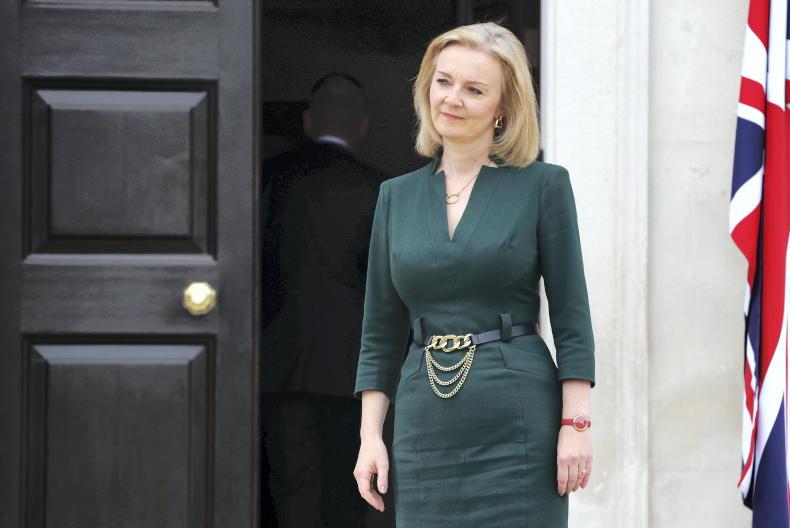UK farmers are coming under growing pressure from rising production costs, which increased by 23.5% in July, while farmgate prices increased by a more modest 10.1%.
This was revealed by Andersons Agri Consultants in its monthly update, which also highlights that in the first half of 2022, farmgate prices increased more or less in line with rising costs.
They are also forecasting that key input costs of fuel fertiliser and feed are likely to continue at high levels for the foreseeable future due to high energy costs that could get worse in autumn and winter.
There is wide variation across sectors, with farmgate milk prices rising by 41% since July 2021, while, despite a recent dip, cereal prices are 29% higher.
It is in the livestock sector that difficulties are greatest, with farmgate prices up between 10% and 19%.
Reflects Northern Ireland picture
These figures are broadly in line with work done by the Irish Farmers Journal and published in this week’s northern edition.
Based on DAERA’s figures, farm input costs are 28% or £487m (€580m) higher than last year, while dairy prices have increased by 50%, cereals prices are 33% higher and beef price is just 8.5% higher.
Reduced payments with CAP replacement
Farmers in Britain are also faced with the issue of falling BPS payments, as the UK transitions out of the EU CAP base support system for farmers.
Agriculture is a devolved issue and the Northern Ireland Executive has the option to frame its own replacement for CAP.
In England, the value of the payment will be 35% lower next year than it was in 2020 and it will then be replaced with a sustainable farming incentive scheme, which is environment-based, as opposed to farm income-based.
Many farmers won’t be eligible for this payment and will be reliant on a rising market for their produce to sustain incomes.
Complicated market
Achieving more from the market will be complicated by the entry of New Zealand dairy and beef, alongside existing lamb, plus Australian beef and lamb.
This will arise from the trade deals agreed by the UK government that will come into effect later this year or early in 2023.
Of course, the impact of these will be even greater for Irish farmers, as Irish beef, lamb and dairy are the current preferred import by UK customers.
Read more
Costs for NI farms surge by £500m
Pilgrim’s launches new UK lamb brand
UK farmers are coming under growing pressure from rising production costs, which increased by 23.5% in July, while farmgate prices increased by a more modest 10.1%.
This was revealed by Andersons Agri Consultants in its monthly update, which also highlights that in the first half of 2022, farmgate prices increased more or less in line with rising costs.
They are also forecasting that key input costs of fuel fertiliser and feed are likely to continue at high levels for the foreseeable future due to high energy costs that could get worse in autumn and winter.
There is wide variation across sectors, with farmgate milk prices rising by 41% since July 2021, while, despite a recent dip, cereal prices are 29% higher.
It is in the livestock sector that difficulties are greatest, with farmgate prices up between 10% and 19%.
Reflects Northern Ireland picture
These figures are broadly in line with work done by the Irish Farmers Journal and published in this week’s northern edition.
Based on DAERA’s figures, farm input costs are 28% or £487m (€580m) higher than last year, while dairy prices have increased by 50%, cereals prices are 33% higher and beef price is just 8.5% higher.
Reduced payments with CAP replacement
Farmers in Britain are also faced with the issue of falling BPS payments, as the UK transitions out of the EU CAP base support system for farmers.
Agriculture is a devolved issue and the Northern Ireland Executive has the option to frame its own replacement for CAP.
In England, the value of the payment will be 35% lower next year than it was in 2020 and it will then be replaced with a sustainable farming incentive scheme, which is environment-based, as opposed to farm income-based.
Many farmers won’t be eligible for this payment and will be reliant on a rising market for their produce to sustain incomes.
Complicated market
Achieving more from the market will be complicated by the entry of New Zealand dairy and beef, alongside existing lamb, plus Australian beef and lamb.
This will arise from the trade deals agreed by the UK government that will come into effect later this year or early in 2023.
Of course, the impact of these will be even greater for Irish farmers, as Irish beef, lamb and dairy are the current preferred import by UK customers.
Read more
Costs for NI farms surge by £500m
Pilgrim’s launches new UK lamb brand






 This is a subscriber-only article
This is a subscriber-only article











SHARING OPTIONS: